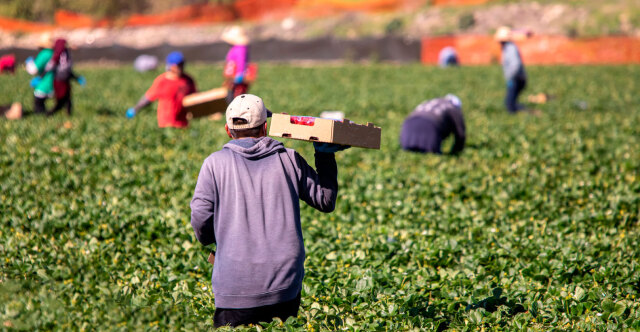Greece is on the verge of finalizing a bilateral agreement with India regarding the dispatch of labor. As the world’s most populous nation, India is working to finalize the details, aiming to move forward with the agreement after summer.
This agreement is set to address significant labor shortages in various sectors within Greece. It will allow the transfer of highly skilled workers, essential for industries like food service and tourism, as well as general laborers for agriculture, construction, and other fields. Reports suggest that India is initially looking to send approximately 50,000 workers annually, both skilled and unskilled, under this agreement.
The Role of the Chamber of Commerce
Angelos Tsavdaris, president of the Hellenic-Indian Chamber of Commerce and Economy, shared in an interview with Proto Thema that the Chamber is in advanced talks with India’s Ministry of Skill Development and Entrepreneurship about the worker transfer process. “While both sides are expressing goodwill, this is a complex task,” he notes. “We need to meticulously plan details such as accommodation, social security number issuance (AMKA), training, and performance evaluations.”
To tackle these challenges, the Chamber has created a program named “Eutopia”. According to Tsavdaris, this innovative initiative has private-sector features aimed at providing a lasting solution to Greece’s foreign labor recruitment challenges. “Eutopia” is designed to serve as a model for other European countries, emphasizing transparency, legality, and labor rights.
“Recruiting Indian workers will address critical gaps in the Greek labor market, especially in agriculture, manufacturing, and construction. This will enhance business competitiveness and create new jobs, ensuring social balance and economic progress,” asserts Mr. Tsavdaris.
He further adds:
“With the backing of government and diplomatic institutions, the Chamber has established a reliable cooperative network between Greece and India, ensuring legal compliance, certification, and social integration for incoming workers. However, to expedite the process, existing legal frameworks need to be updated, as they often lead to delays and do not meet employers’ actual needs.”
Mr. Tsavdaris stresses the Chamber’s dedication to crafting a modern and sustainable labor policy that respects human values and bolsters the national economy. The Chamber continues to play a vital role in connecting Greece and India in labor, mobility, and business development. With over three years of active engagement in the recruitment of Indian guest workers, the Chamber significantly contributes to fostering a sustainable and humane work environment.
The “Eutopia” program, developed by the Hellenic-Indian Chamber, has been in progress for nearly two years and is close to completion. It specifically addresses labor shortages in Greek agriculture and industry, focusing on ensuring decent working and living conditions for laborers while promoting the country’s economic growth.
Main Goals of the “Eutopia” Program:
- Address labor demand: Offer immediate solutions to the increasing needs in agriculture and manufacturing.
- Create a reception network: Establish offices to gather worker data, conduct interviews, and mediate between employers and employees.
- Ensure rights and protections: Safeguard labor rights, provide access to healthcare, and guarantee fair wages and living conditions.
A “Breath of Relief”
Government sources highlight that some sectors in the Greek economy struggle to attract local labor, even when offering competitive salaries. In these instances, the law permits the recruitment of foreign workers for specific job categories. The agricultural sector exemplifies this challenge, with shortages also noted in various professions.
This is where the upcoming bilateral agreements become significant. Some have already been ratified, while discussions continue with additional countries to create a structured framework for labor imports suited to Greece’s market needs.
This topic was also discussed during Greek Prime Minister Kyriakos Mitsotakis’ official visit to India, where initial conversations about sending Indian agricultural workers to Greece took place. This agreement, still in negotiation, is anticipated to serve as a model for future collaborations with other nations, contributing to a long-term strategy for sustainably enhancing Greece’s workforce.
Ask me anything
Explore related questions

















